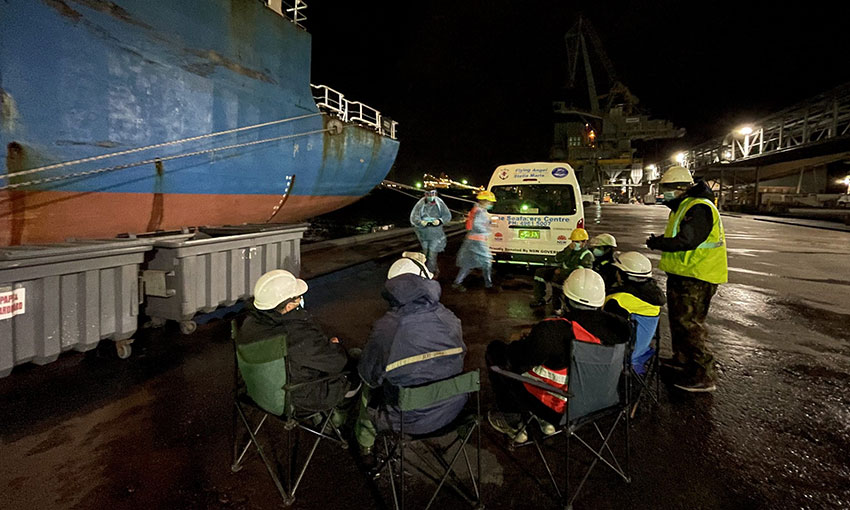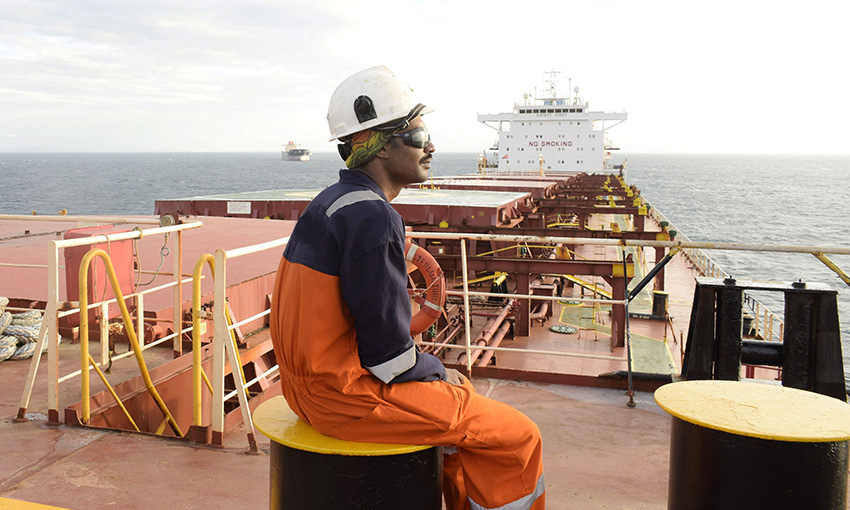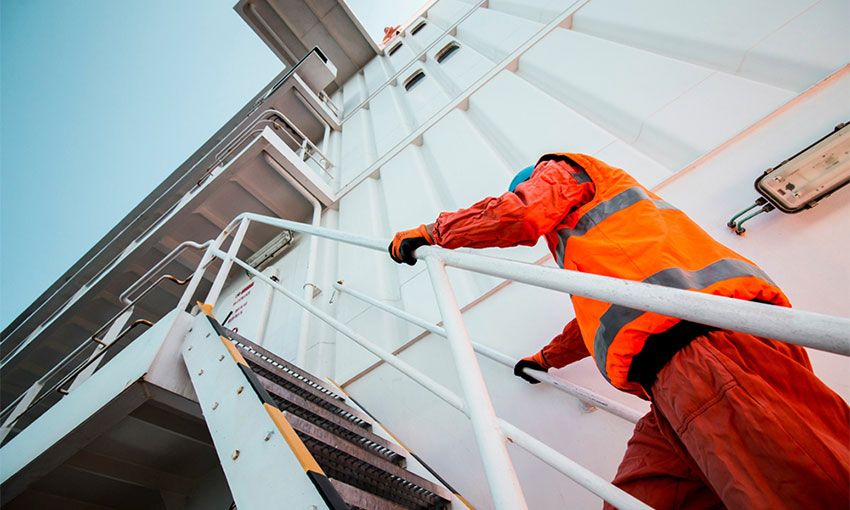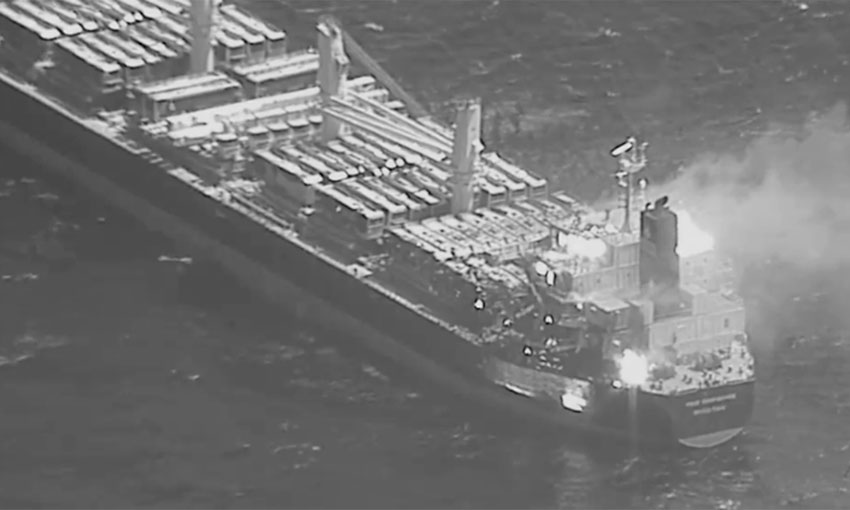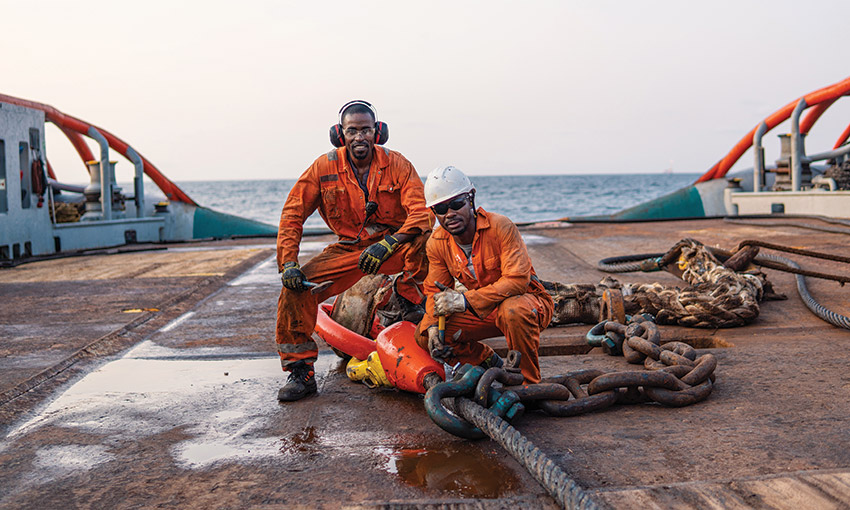MISSION to Seafarers Australia is taking the lead in the vaccination of international seafarers, with group vaccinations arranged for crewmembers in Newcastle and Brisbane.
In Port of Newcastle, vaccinations were carried out Monday this week, for a crew of Peruvian seafarers unable to return home.
In Port of Brisbane, vaccinations have been arranged for the community of I-Kiribati seafarers who have been stranded in Australia for several months.
The accomplishments coincide with Maritime Safety Queensland’s investigation of a trial program to vaccinate seafarers arriving in Australian ports, and a wider discussion stimulated by recent events such as the COVID outbreak on a ship off the Newcastle coast.
MSQ acting general manager Andrew Mahon is aware of the growing interest in the impending trial vaccination program and told DCN the organisation is working with health authorities to examine it further before trials proceed.
“MSQ is supportive of the work being done by Mission to Seafarers Brisbane and other branches to ensure seafarers health and welfare are considered,” Mr Mahon said.
“MSQ appreciates the importance of vaccinating international seafarers whose health and safety are critical to the continuity of shipping, supply chains and essential trade.
“MSQ is in the initial stages of an investigation into a trial vaccination program and working with Queensland Health over coming weeks to identify factors which would have to be considered before any trial could proceed.”
Vaccinations arranged for I-Kiribati crew in Brisbane
In Queensland, MTS Brisbane has arranged for 39 of 43 I-Kiribati crewmembers to be vaccinated. The remaining four have already received the jab.
The group of seafarers stranded in Brisbane has been growing due to ongoing repatriation challenges created by Kiribati’s border closures.
MTS Brisbane president Ross Nicholls said although co-ordinating the group vaccination was particularly challenging as the seafarers are not Australian citizens, it is a crucial step in securing their repatriation.
“When they heard the news yesterday, they were very excited to think that they’re actually getting the vaccine, because they know vaccination is such a critical part of the process of returning home,” Mr Nicholls said.
“It helps reduce those barriers that are between the seafarers getting back home. It’s just one more barrier that’s been dropped because the [Kiribati] government has less and less reason to withhold their return.”
Mr Nicholls said the main obstacle in vaccinating seafarers is the logistics of providing the second dose to seafarers who are constantly travelling between different ports, often internationally.
However, for those ships remaining in Australian waters for longer periods of time, there may be an opportunity for a nation-wide vaccination program to emerge.
“It’s really a matter of identifying all those ships that are regular calls to ports in Australia,” he said.
“You can imagine if a ship is going to be in Australia for several months, but it’s going to be trading amongst a range of ports across multiple states, then it really needs to be not just a state-alone approach, but some sort of national co-ordination.”
Mr Nicholls said there are a range of logistical and protocol type complexities to managing multiple ports and large numbers of crewmembers at different stages of their contracts, but strategies to overcome them need to be considered to protect seafarers, the shipping industry, and the nation.
“While we keep our economy going, our economy is so highly dependent upon ships and trade, that if COVID took out the shipping industry – which is quite probable considering ships and seafarers traverse international boundaries all the time – then the world would be in trouble.
“It is important that a safe and workable protocol for vaccinating seafarers is established and rolled out, and if it was successful in one state or in one country, why shouldn’t that be acceptable internationally?”
Peruvian crew vaccinated in Newcastle
MTS Newcastle called for, facilitated, and delivered vaccine to the Peruvian crew of the Wincanton, who have been sailing repeatedly between Newcastle and Gladstone throughout the pandemic.
The crew have not left Australian waters, and without being vaccinated, they would not have been permitted to return to Peru.
With the required permissions in place from Port of Newcastle and NSW Health, MTS ventured out with a medically trained board member to administer the vaccines.
Over the past 18 months, MTS Newcastle said it has seen an increase in compassion toward seafarers and the desperate situations they face.
With port regulations in place to manage the risk of COVID-19, the team devised innovative strategies to continue caring for seafarers.
In spite of associated challenges, these regulations have also created opportunities for increasing industry partnership and collaboration, with port workers taking on a greater role in the provision of welfare for seafarers visiting Newcastle’s wharves.
“The Mission to Seafarers wishes to extend their thanks to all those behind the scenes who worked diligently and at short notice to bring this important event to fruition,” MTS Newcastle said in a statement.
“The Mission to Seafarers continues to call on state and federal governments and agencies to recognise and act on the clear fact that it is both in our national interest and in the interest of our national conscience to roll out vaccines to the seafarers who continue to faithfully supply our island nation.”

